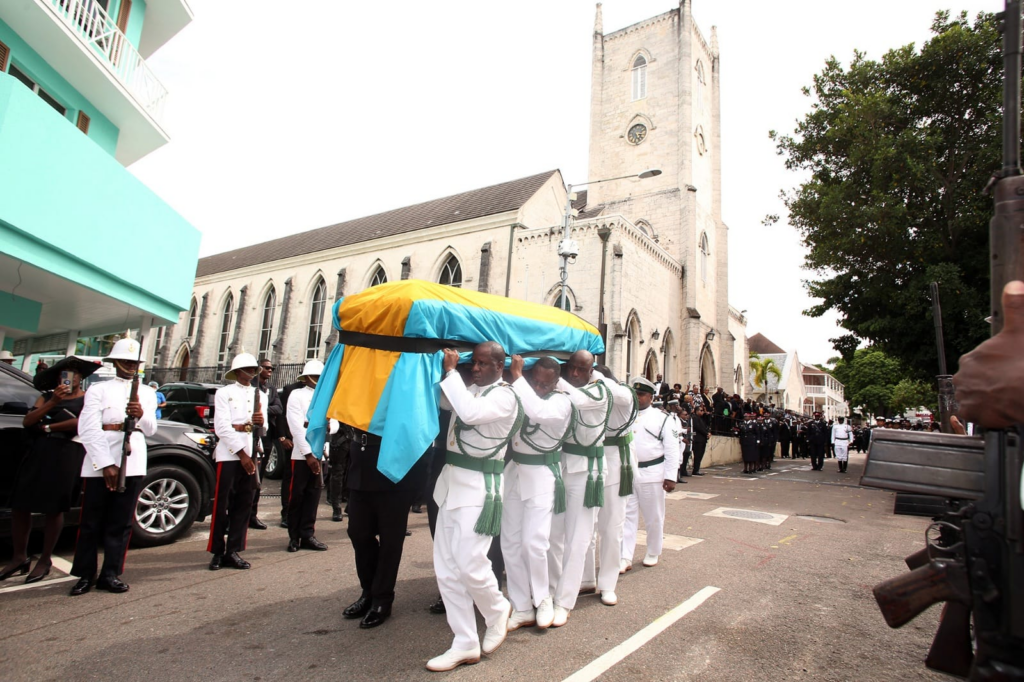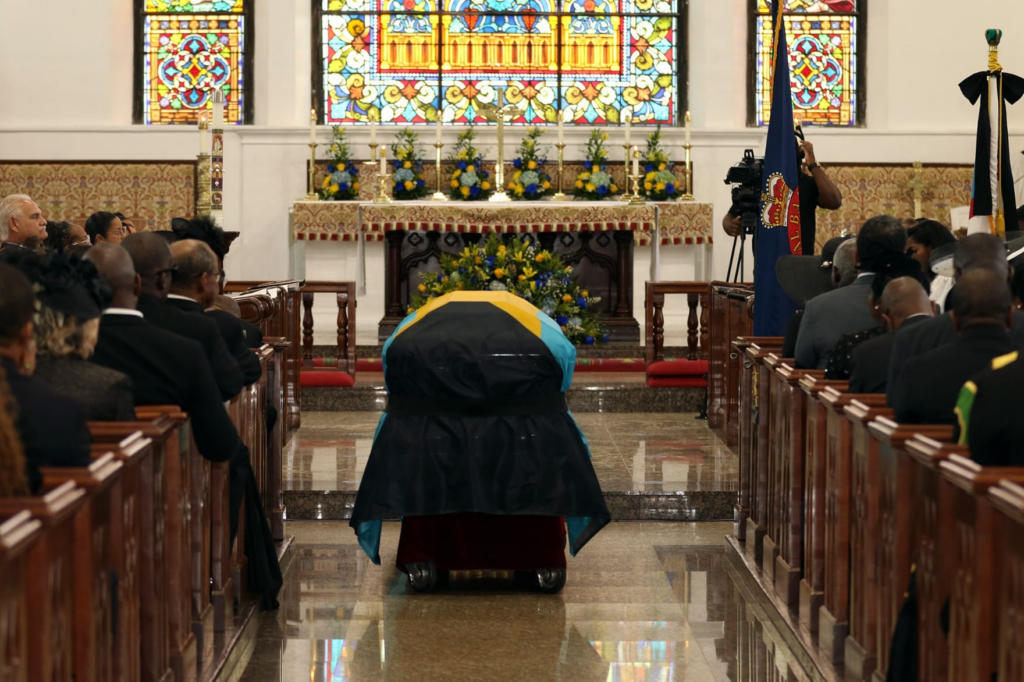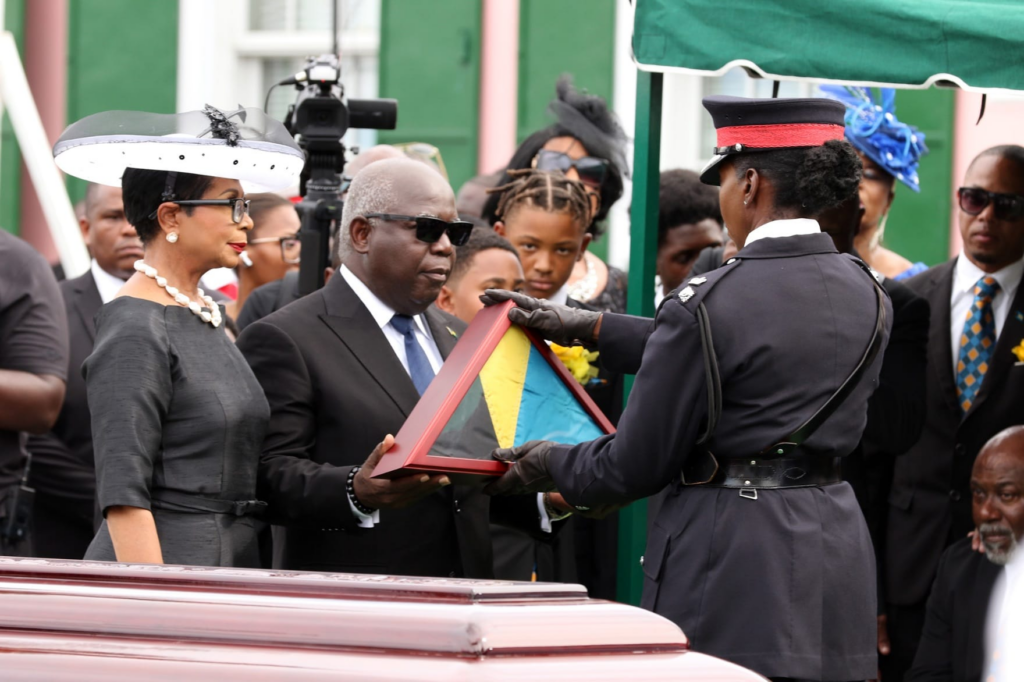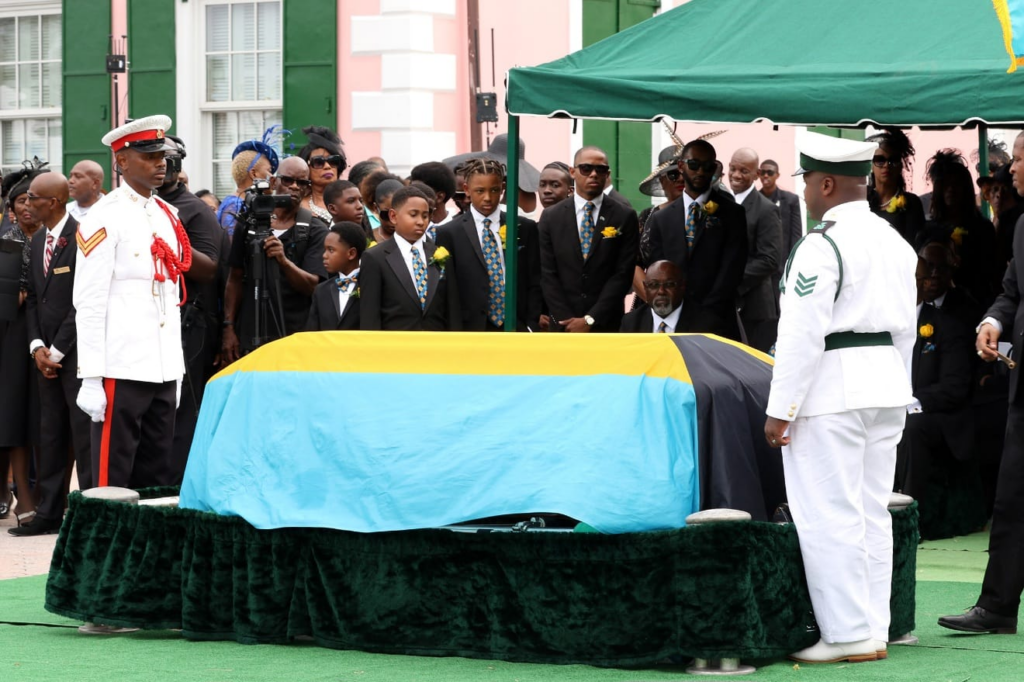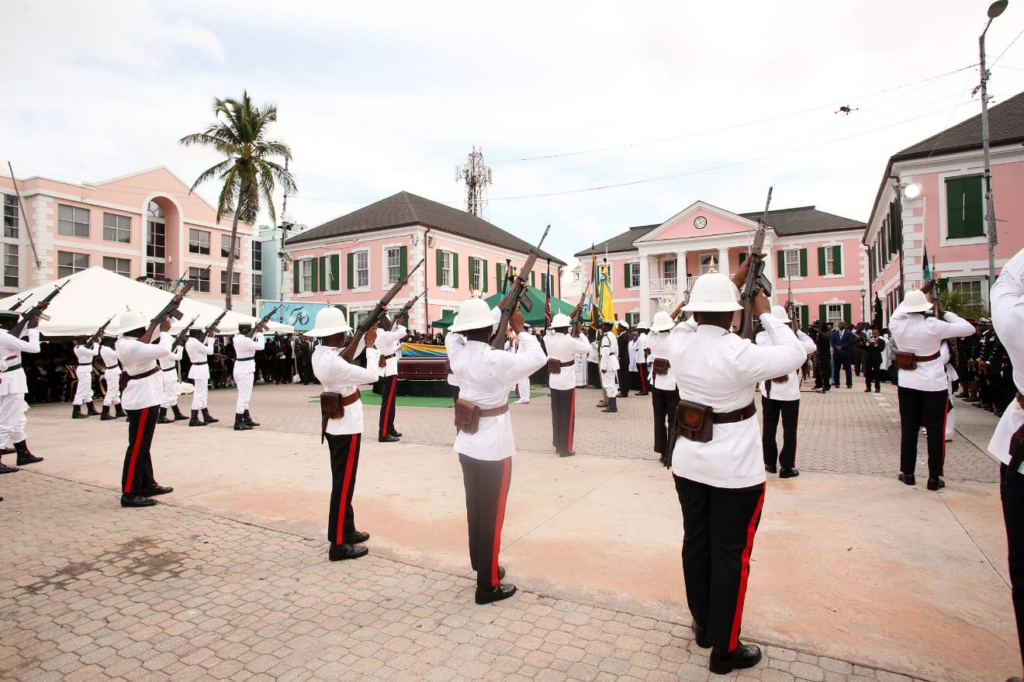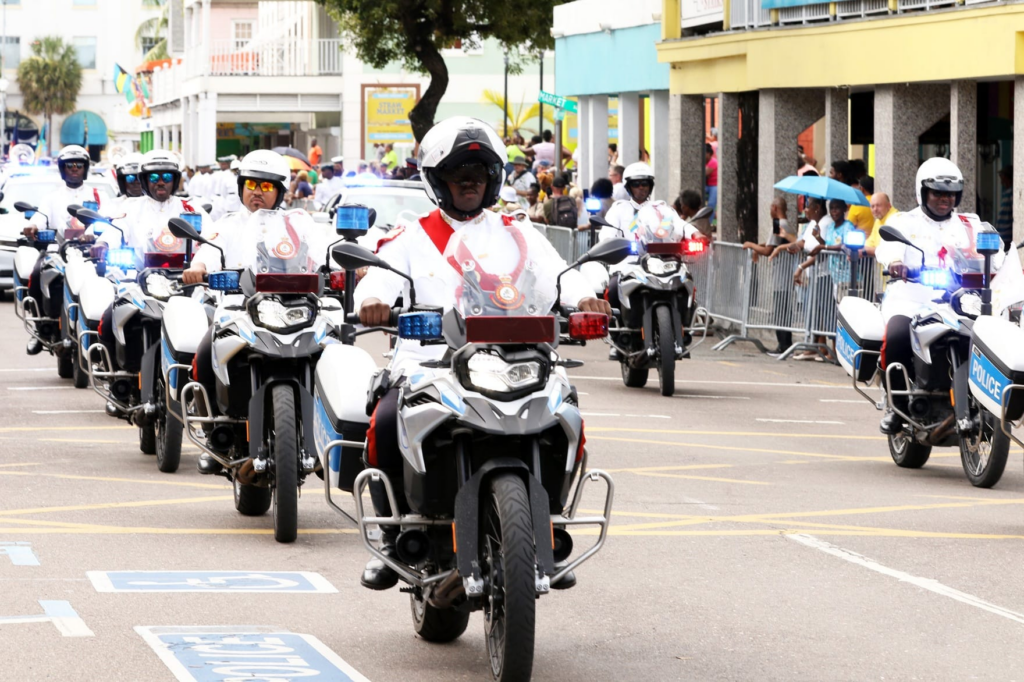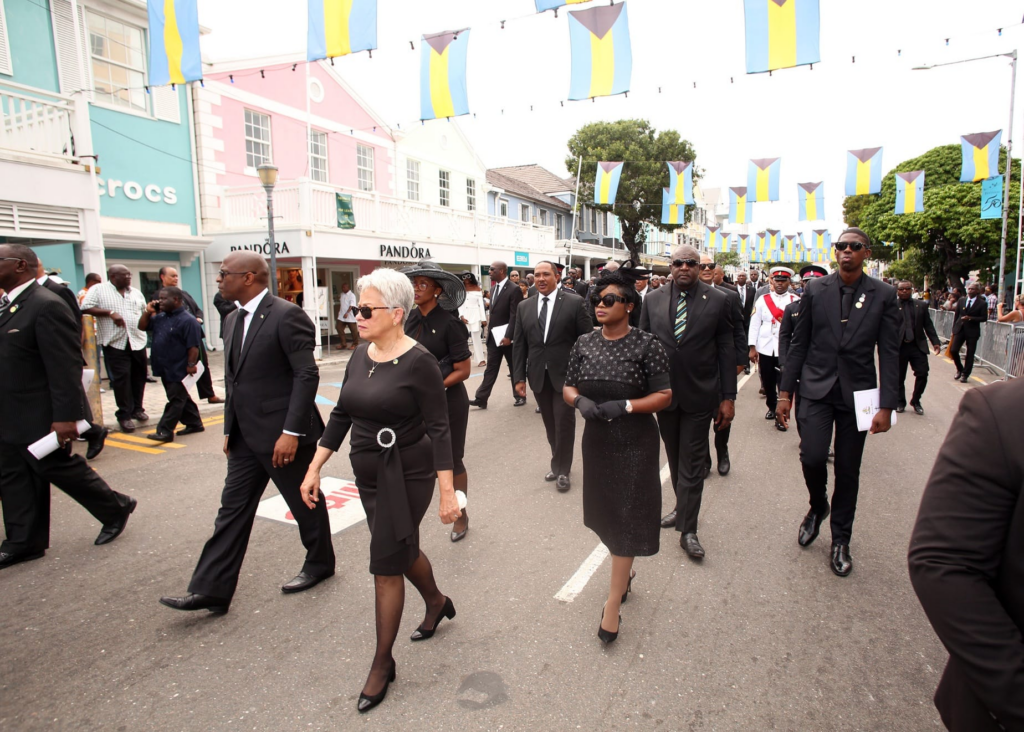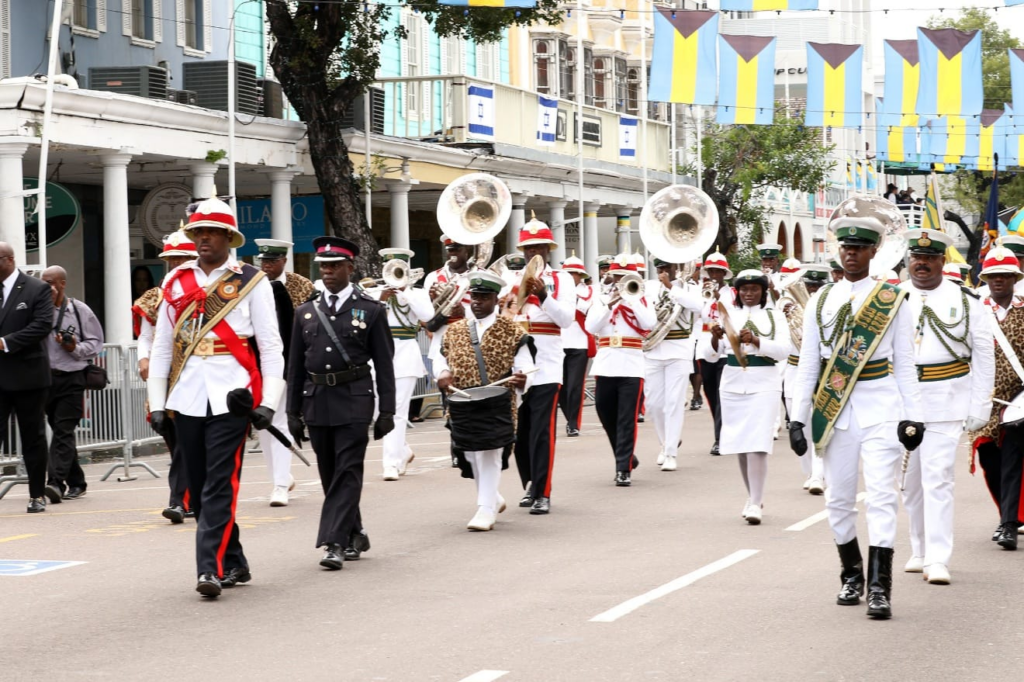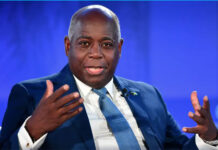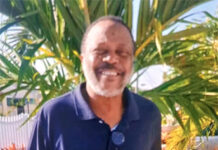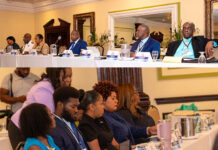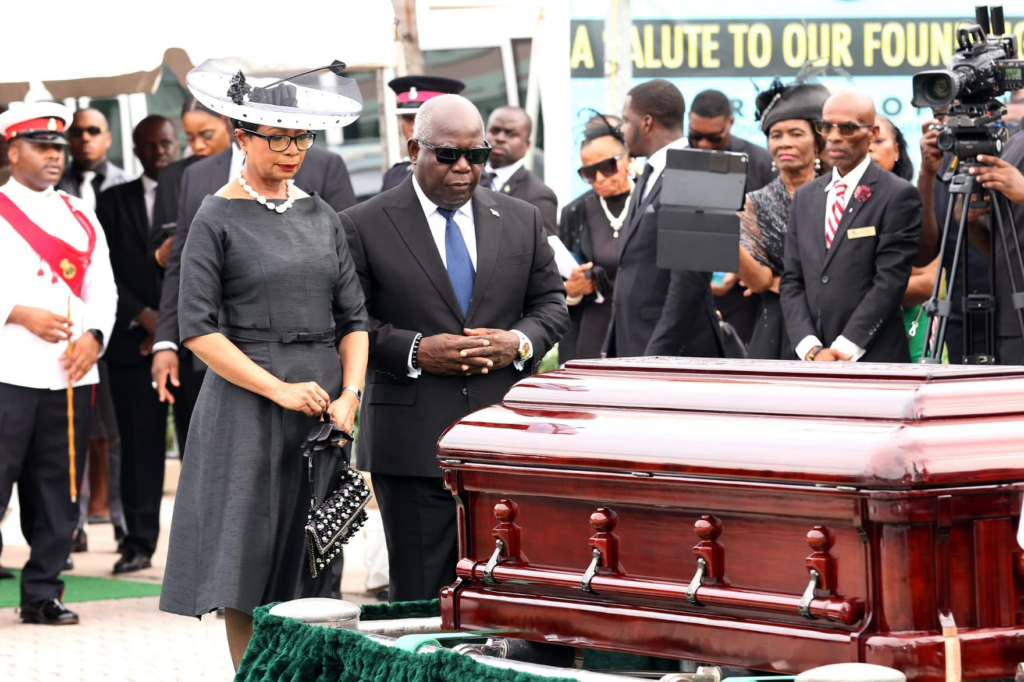
Your Excellency the Governor-General,
The Very Reverend Dean Harry Bain,
Reverend, Honoured and Distinguished Guests,
Good morning.
When it came, the news of the sudden passing of the Honourable Obadiah Wilchcombe was a profound shock to the nation.
To lose a serving Cabinet Minister is thankfully rare in our history.
But, our collective feelings run far more deeply than that offered because of his job and title.
Here was a man, seemingly in his prime, who was still at the forefront of the cut and thrust of politics.
Here was a man who was fresh from having successfully piloted through Parliament, long-anticipated legislation to introduce greater protections against violence.
And here was a man who was now on the cusp of introducing laws to effect greater gender equality in our Bahamas.
Here was a man who still had so very much more to offer.
State occasions such as these allow for national mourning and expressions of grief.
We come together to celebrate the lives of our statesmen and women, to offer appreciation for their contribution, and reflect a little on the lessons taught by lives that dedicated so much to public service.
That said, I trust that you will indulge me to speak not only as Prime Minister, but as a long-time friend and colleague of the man we all knew as Obie.
We met back in the mid-70s in Freeport, when he was a sharp-witted young reporter covering news from the courts, and I was a practising lawyer.
His political ambitions were already in full view, and he would joke over the years that one day he would become Prime Minister, and that he would appoint me Chief Justice.
Although we had little idea of what our futures would bring, it spoke to the mutual respect in our friendship, and our shared sense of the potential of what life could be in our newly-independent Bahamas.
Obie’s achievements in broadcasting have been widely admired in recent days.
He made history when he was sent to prison for refusing to reveal his sources, in defense of a great principle of journalism.
While still a student, Obie found a great mentor in the Father of our Nation, Prime Minister Sir Lynden Pindling.
He was greatly influenced by Pindling’s example, and moved from writing speeches for Pindling, into a political life of his own: first within the Progressive Liberal Party, eventually rising to the position of Chairman; and then as an appointed and elected representative in his own right.
His service at various times as Member of Parliament, Cabinet Minister, Senator, and Leader of Government Business in the House, all bore traces of Pindling’s influence.
Whether it was in ideology or in political practice, in policy or in his magnificent public oratory, Obie flew the flag for Pindling.
His innovations in tourism, and his fearlessness in driving through legislation that was based on principle rather than easy popularity, based on national interest rather than partisanship, will forever remain as great testaments to his character.
And herein lie some of the lessons that we can draw from the life of Obie.
In going to prison, he paid a heavy price in standing up for a point of principle.
I wonder how many of our journalists today would be willing to do the same?
Perhaps the lesson here for each of us, is in the need to keep a clear focus on the things that really matter, to focus on the things that are really important, so that, when called upon, we are ready to stand and defend that which is good.
The example of his mentorship by Sir Lynden offers further lessons from Obie’s life.
Those of us with experience, especially in politics, but in every walk of society, should make every effort to prepare the next generation for leadership.
Do not be so focused on your own ambition and career that you neglect those who will come behind you.
Be generous to young people with your time and wisdom, so that, when the moment comes, they are ready to receive the mantle of leadership.
And as Obie did in his youth, I pray that many more young people would step forward and offer themselves for public service.
There is so much to be learned from Obie’s boundless optimism, and his profound belief that politics are a force for good, one of the best agents of positive change.
Cynicism and narrow self-interest will not produce the kind of country that we all hope for, the kind of country we are all striving for.
An important lesson is also to know when it is right for the mentorship to end, when the student must fly free, to shape the world for the next generation.
It is fitting that this State Service is being held today, October 12th, the anniversary of the recorded landfall of Christopher Columbus in The Bahamas.
Obie had a keen sense of the thread of Bahamian history, winding around landmark moments.
His parents had both been very active, early members of the Progressive Liberal Party.
His love of the party, and all that it stood for, his acceptance of the discipline of the party and its tradition, were part of the thread of his personal inheritance.
He would no doubt have enjoyed the irony that, his life, dedicated to progressive values and ideals, is being celebrated on the very day that marked the arrival of one of the great oppressors of those values.
I can hear his voice now, laughing and speaking in typical fashion: “What a time, hey? What a time!”
Away from the public platform, Obie was a very private person.
There was a part of him that sometimes felt unknowable, unreachable.
This can be an important attribute for those of us in public life, a way to keep yourself fully human.
He didn’t flinch from showing the extremes of his passions, and taught us in turn, to love both his laughter and his tears.
In the run-up to the last election, Obie was keen to run, even though he had faced some major health challenges in the years before.
In respecting his privacy, I did not probe for details, but he assured me that he was fit for the job.
He rejected any suggestion that he might take on a gentler role, perhaps as an ambassador, without the heavy responsibilities of running a ministry.
I am happy that I took him at his word.
He was surprised to be invited to serve as Minister of Social Services and Urban Renewal, but quickly jumped into the role with his usual passion and flair.
During the recent reshuffle, when I asked him to take on the additional roles of Information and Broadcasting, he was full of enthusiasm about all the possibilities that lay ahead.
He said that he was “ready to roll”.
There is comfort in knowing that Obie’s last days were spent in typical fashion: serving the Bahamian people.
Four days before his passing, his pride and enthusiasm bubbled over at the launch of the new ZNS branding and programme line-up, at the prospect of once again, lifting up our national station.
His presence the following day at the memorial held for George Smith in Exuma, was a testament to long-standing political friendships.
And the day before he passed, in his passionate speech to the Women’s Branch of the Progressive Liberal Party in Grand Bahama, he issued the charge that should guide us all into the future.
Whatever we are, and wherever we are in life, let some of his final words on that day live on in our memories.
“…Feed the poor, guide the youth and bring peace to every heart…
THAT’S our responsibility.”
“…Feed the poor, guide the youth and bring peace to every heart..
THAT’S our responsibility!!”
Amen, Obie, Amen.
Amen, my brother, Amen.
One Love.
May he Rest in Peace.
